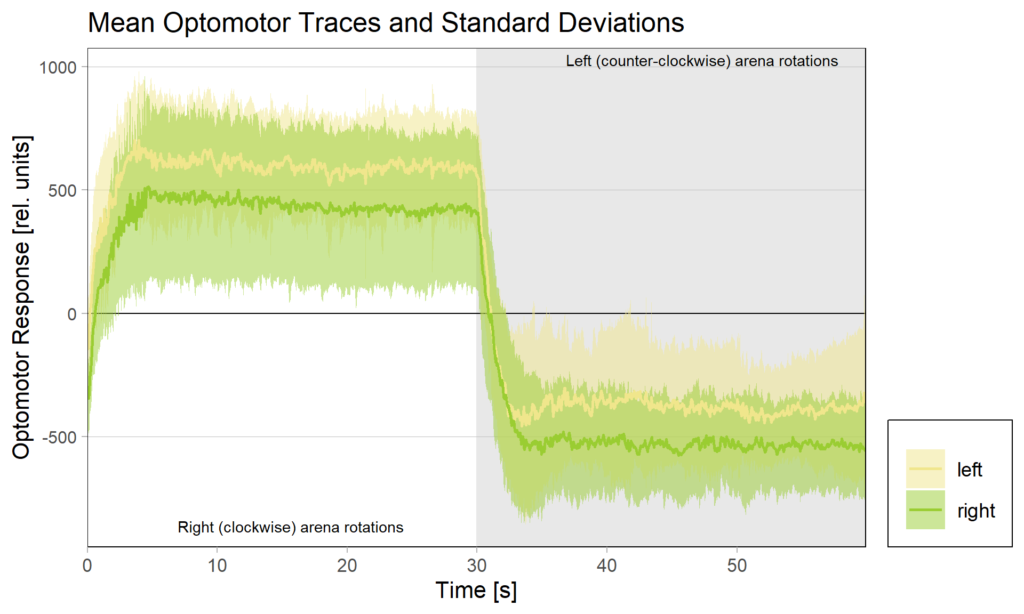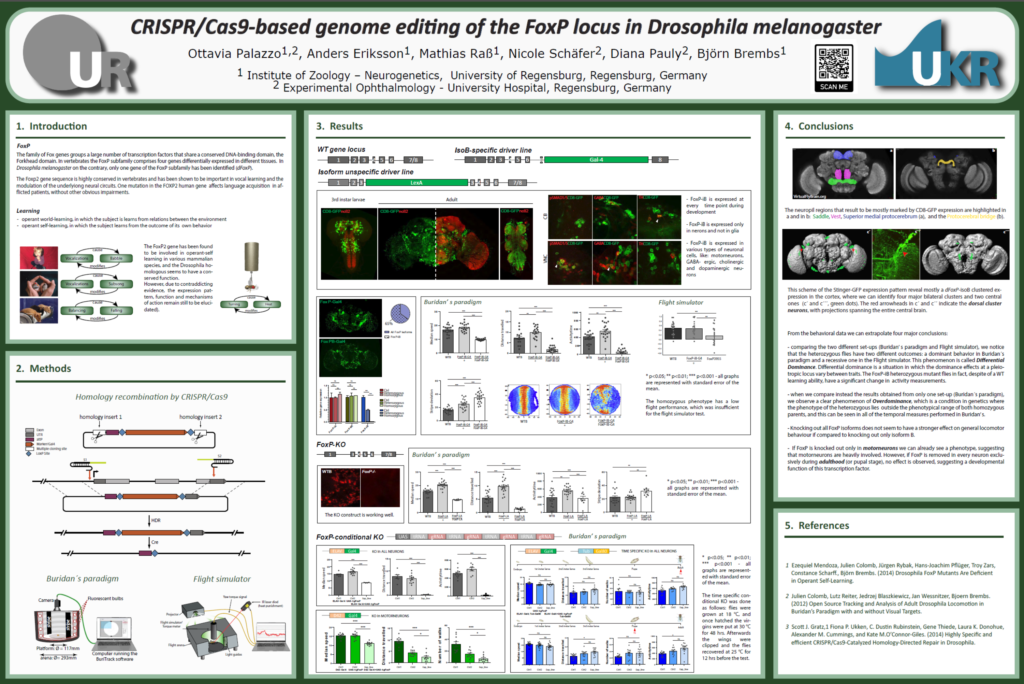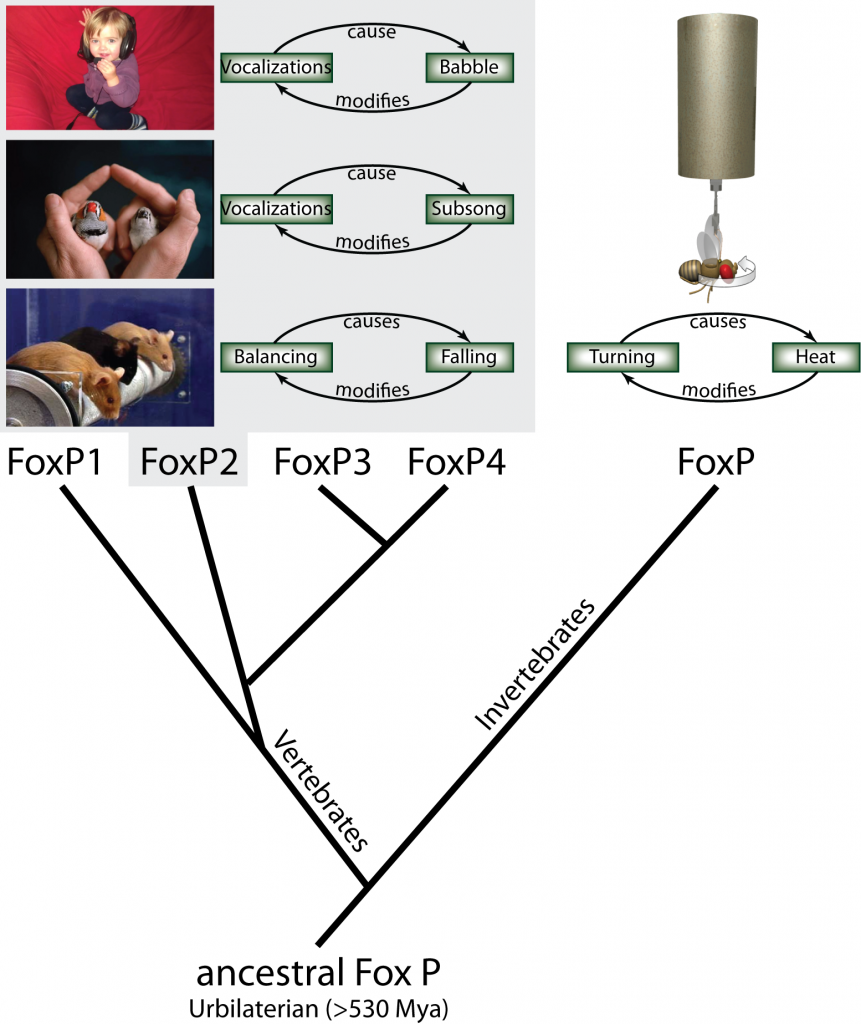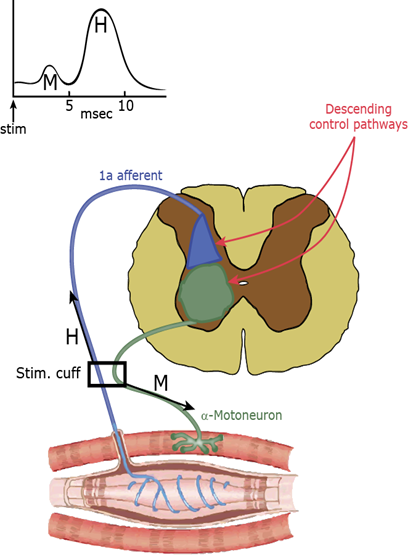It has been almost 10 years now that we have come to the realization that a particular type of our operant experiments can be classified as motor learning. In such “operant self-learning” experiments, the animal learns about the consequences of its own behavior and adjusts future behavior accordingly.
We are looking for a PhD student interested in the functional, molecular and structural profile of neuronal circuits underlying learning, memory and behavior. In a 30-year research effort (lay summary, paper), we have recently identified a new gene (atypical PKC, aPKC) necessary for a form of motor learning in the fruit fly Drosophila and in which neurons it is required.

It was my freshman year, 1991. I was enthusiastic to finally be learning about biology, after being forced to waste a year in the German army’s compulsory service at the time. Little did I know that it was the same year a research paper was published that would guide the direction of my career to this day, more than 30 years later. Many of the links in this post will go to old web pages I created while learning about this research.

Tomorrow we travel to the annual meeting of the Society for Neuroscience and our diligent scientists have already printed their posters! Ottavia Palazzo will present her work on genome editing the FoxP locus of Drosophila with anatomical and behavioral characterizations of the various transgenic lines she has created.
This is the story behind our work on the function of the FoxP gene in the fruit fly Drosophila (more background info). As so many good things, it started with beer. Troy Zars and I were having a beer on one of the ICN evenings, I think it was in Vancouver in 2007. I had recently learned about the conserved role of FoxP2 in songbirds, out of one of the labs in Berlin, where I was based at the time.

See this post with the associated press releases on brembs.net. The F orkhead B ox P2 (FOXP2) gene is well-known for its involvement in language disorders. We have discovered that a relative of this gene in fruit flies, dFoxP , is necessary for a type of learning called operant self-learning, which resembles some aspects of language learning.

“Standing on the shoulders of giants” is what scientists say to acknowledge the work they are building on. It is a statement of humility and mostly accompanied by citations to the primary literature preceding the current work. In today’s competitive scientific enterprise, however, such humility appears completely misplaced.
*During my flyfishing vacation last year, pretty much nothing was happening on this blog. Now that I’ve migrated the blog to WordPress, I can actually schedule posts to appear when in fact I’m not even at the computer. I’m using this functionality to re-blog a few posts from the archives during the month of august while I’m away.

During my flyfishing vacation last year, pretty much nothing was happening on this blog. Now that I’ve migrated the blog to WordPress, I can actually schedule posts to appear when in fact I’m not even at the computer. I’m using this functionality to re-blog a few posts from the archives during the month of august while I’m away.
Yesterday, Alex Kacelnik published yet another fascinating discovery – one of many over the years out of his lab. This time, they show how birds can pick even five consecutive locks to get to a food reward: According to the authors, the birds solve this problem by trial and error, i.e., in the operant, goal-directed way, which is the learning mechanism we study in our lab.